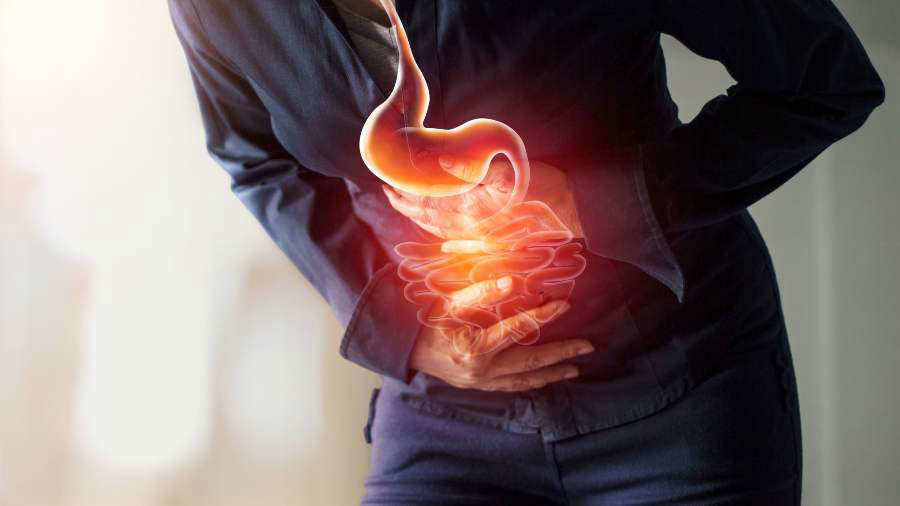
1. Pylori (Helicobacter pylori, pronounced “helicobacter pylori”) is a type that infects the stomach.
It can damage the tissue in the stomach and the first part of the small intestine (duodenum). It May cause redness and tenderness (inflammation). It can also cause peptic ulcers in the upper part of your digestive system.
The H. pylori bacteria is common. Lots of people have it. Most of these people will not have ulcers or symptoms. But it is one of the leading causes of an ulcer.
2. Pylori bacteria attack the lining that protects your stomach. That bacterium produces an enzyme called urease. This enzyme makes stomach acids less acidic (neutralises them). This weakens the lining of your stomach.
Your stomach cells are most at risk of being damaged by acid and pepsin, solid digestive fluids that cause sores or ulcers in the stomach or duodenum.
3. Pylori bacteria can also attach to cells in your stomach. Unfortunately, your stomach can’t protect itself very well. Instead, the area becomes red and inflamed (swells).
4. Pylori bacteria can also cause your stomach to make more acid. However, health experts don’t fully understand how this happens.
Causes of an H. pylori infection?
Health experts don’t know for sure how an H. pylori infection spreads. They believe that germs can be passed from one person to another through the mouth, for example, by kissing.
They can also be spread through contact with vomit or faeces. This can happen if you:
- Eat food that has not been cleaned and cooked safely
- Drinking infected water
Who is at risk for H. pylori infection?
We may be at higher risk for H. pylori infection because of your:
- Age. More than half of Americans with the bacteria are over 50.
- Your race or ethnic origin. Nearly half of all African Americans have the bacteria.
Most people get the bacteria as children, but adults also get it.
Symptoms of an H. pylori infection
Most people carry the bacteria for years without knowing it because they don’t have any symptoms. However, experts do not understand why this is so.
You may have redness and inflammation (swelling) in your stomach lining. That’s gastritis.
You may have sores or peptic ulcers in your stomach or the first part of your small intestine (duodenum). Ulcer symptoms may include abdominal pain, which may have the following characteristics:
- Being a dull ache that won’t go away
- Appear two to three hours after eating
- Go away when you eat or take medicines that reduce the level of acid in your abdomen (antacids)
Other ulcer symptoms may include:
- Weightloss
- Lack of appetite
- Inflammation or distension
- Belching
- Stomach upset or nausea
- Threw up
The symptoms of an ulcer may resemble other health problems. Always check with your health care provider to be sure.
How is an H. pylori infection diagnosed?
The doctor asks about your health history and does a physical exam. He may also order other tests and tests, such as:
- Blood test. They check for infection-fighting cells (antibodies), which means you have the bacteria.
- Stool culture. This test checks for abnormal bacteria in your digestive systems. A sample is sent to a lab. The test will show abnormal bacteria in two to three days.
- Breath tests. They can check for carbon after swallowing urea tablets. If carbon is found, the H. pylori bacteria have produced urease. That weakens the mucous lining of your stomach.
- Upper endoscopy is also called oesophagus-gastro-duodenoscopy (EGD). This test looks at the lining of your oesophagus, stomach, and duodenum (the upper part of your small intestine). The endoscope is used. The tube has a camera. The tube will be inserted into your mouth and down your throat. It will then go into your oesophagus, stomach, and duodenum. Your health care provider can see inside these organs. Take a tissue sample (biopsy) if needed. That tissue sample can tell if you have the enzyme urease. It also allows you to analyze what bacteria that sample has.
How is an H. pylori infection treated?
Your health care provider will design a plan of care for you based on:
- Your age, general health, and medical history
- The severity of your case
- How well do you manage certain medications, treatments, or therapies
- If your condition is expected to worsen
- What would you like to do
Your doctor may prescribe you to take medicine to fight bacteria (antibiotics).
Other medications may include:
- H2 blockers. They block the hormone histamine and thereby reduce the amount of acid in your stomach. Histamine helps produce acid.
- Proton-pump inhibitor. They help keep your stomach from making acid. To do this, they prevent the stomach acid pump from working.
- Stomach lining protectors. These medicines protect the stomach lining from acid and help kill bacteria.
What are the complications of an H. pylori infection?
You can get a peptic ulcer if a bacterial infection occurs. These sores form in the upper part of the digestive system.
A nasty ulcer can destroy the lining of your stomach. That can cause problems such as:
- Bleeding when a blood vessel wears out
- the perforation in the wall of your stomach
- Blockage if the ulcer is at a point that prevents food from leaving your stomach
The H. pylori bacteria can also cause stomach cancer.
How to prevent H. pylori infection?
Health experts don’t know how the bacteria spread from person to person. But maintaining good health (hygiene) habits can help keep you safe. Such practices are, for example:
- Wash hands with soap and water.
- Ensure all the food you eat is clean and has been cooked safely.
- Make sure the water you drink is safe and clean.

